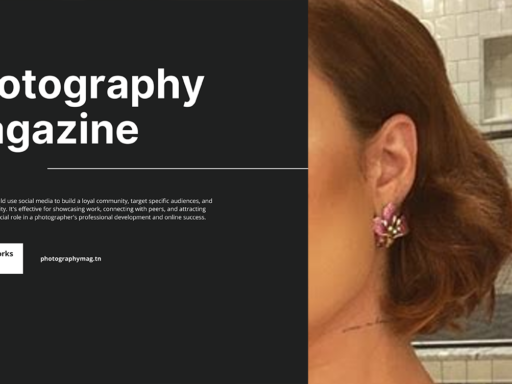Do Hyphens in Tumblr Names Affect Your Blog? Let’s Unpack It!
Ah, Tumblr. The land of 14-year-olds rearranging their top 8 while alternatively being our deep dive into the eccentricity of the internet. Whether you’re launching that bold new blog dedicated to aesthetic sandwiches or starting a fan club for animated cats, the question of blog names inevitably arises. One of the big discussions lurking in the dark corners of this digital atmosphere is about hyphens in Tumblr names. Are they some trendy punctuation choice or do they actually have an impact? Buckle up, dear readers, because we’re about to dissect this adding-on punctuation perplexity with a sprinkle of sarcasm and a jovial twist!
What Are Hyphens, and Why Should We Care?
Before we dive headfirst into the tumultuous waters of Tumblr blog naming conventions, we should probably define what exactly we mean by hyphens. You know, those little line symbols (-) that seem to act as a bridge between words, like a cute little connective tissue in the lexicon of life. They’re typically used to connect compound words, form adjective-noun combos, and sometimes just to mess with our collective grammatical sanity. But they hold an even more interesting fate within the world of blogging on Tumblr.
The Not-So-Sunny Side of Hyphens on Tumblr
In the world of Tumblr, using hyphens in your blog name is like adding a side of truffle oil to your fries. Are you fancy or just trying too hard? But here’s the kicker: While you can certainly include hyphens in the middle of your blog name, they cannot be used at the start or end. So, if your dream blog name is “Noodles-Cosmetics-“—sorry to break it to you, but that name won’t work. In a bid to keep things tidy and avoid unnecessary confusion (is it really that tidy without hyphens? ), Tumblr has imposed these restrictions. Think of it like a fashionable dress code for your blog name; too much embellishment? Nope.
The URL Rules: The Only Consistent Thing in Tumblr Land
If a tree falls in the forest and no one is around to hear it, does it make a sound? Well, if you name your blog “Fantastic-Blogs” but don’t follow the Tumblr URL format, have you even created a blog? Spoiler alert: not really. Hyphens may be your best friends for visual purposes, but they have no impact on your actual Tumblr URL, which can lead to some quite unfortunate scenarios. To put it plainly, Tumblr blog names can spin out quite differently compared to their URLs.
It is vital to note that your blog name cannot include “Tumblr.” So, saying something like “Tumblr-Trendy” would lead you directly to the dark side of the Tumblr naming convention. Sometimes, it’s just good to know that rules exist, even if they feel like little trolls trying to burst your creative bubble.
SEO and Hyphens: An Unlikely Relationship
Let’s talk turkey: When you’re deep in the trenches of SEO—you know, that magical world where rankings and keywords rule—you might think hyphens are a no-brainer. But hold your horses! The effectiveness of using hyphens for SEO is a double-edged sword here. Search engines oftentimes see words connected by hyphens as a single entity. For example, “noodles-cosmetics” is seen as “noodles cosmetics,” while “noodlescosmetics” looks like a jumbled mess. So, while the hyphen might clarify things for your readers, search engines might require a bit more flattering jazz to catch on.
Benefits of Using Hyphens:
- Clarity: They can clarify the meaning of your blog name—a super important aspect when you’re telling the world about your love for bargain basement cat memes.
- Aesthetic Appeal: They can give a crisp design feel to your blog name, kinda like a perfect pair of shoes that completes an outfit (you know, assuming that outfit isn’t a disaster).
- Instant Recognition: A hyphen may make it easier for your audience to remember (but that’s no guarantee—you still have to provide engaging content!).
Potential Drawbacks of Using Hyphens:
- Confusion: They can confuse those poor souls trying to find your blog. “Is it ‘noodles-cosmetics’ or ‘noodles cosmetics’?” Cue existential crisis.
- URL Issues: As mentioned earlier, they might create discrepancies between your blog name and URL.
- SEO Complications: They could potentially lead to search engines misreading crucial elements of your blog name.
How to Choose a Killer Blog Name Without Hyphen Drama
- Be Descriptive: Even if you can’t use “Tumblr,” ensure your name reflects what your blog is about. Like “Adorable-Cartoon-Cats” for the feline aficionados (or just look at my pic of Snowball).
- Keep it Simple: Avoid convoluted names that sound like a failed supervillain’s plot. One or two relevant words usually go a long way.
- Create Memorable Combinations: Use words in a way that feels fresh. “Noodle-Fashionista” sounds way catchier than “My Awesome Noodle Blog.”
- Check Availability: Once you settle on a blog name, use Tumblr’s search feature to see if it is available—nobody wants to find out they’re the 218th “Super-Duper-Noodles”!
Final Thoughts: Who Really Cares About Hyphens, Anyway?
Alright, folks! Here it is in a nutshell. Should you care about hyphens in your Tumblr blog name? Yes, but only to a degree. Utilize them for clarity, but don’t be too reliant on them; after all, the goal is to have a catchy, memorable name that draws readers in, not a cryptic crossword puzzle. Sure, they might enhance your name’s aesthetics and offer a sprinkle of clarity. But if misused or overly relied upon, the hyphen becomes a case of “you can’t always get what you want.”
So, as you wield your creative prowess and innovate the perfect Tumblr name, just remember to keep it engaging, catchy, and free from questionable punctuation placements! Let the hyphens have their moments without allowing them to become the leading star of your blog identity. Now go on, strut your creativity in the Tumblr universe!
“In the end, it’s not the hyphen that defines your blog but the magic you weave within its realms!”





